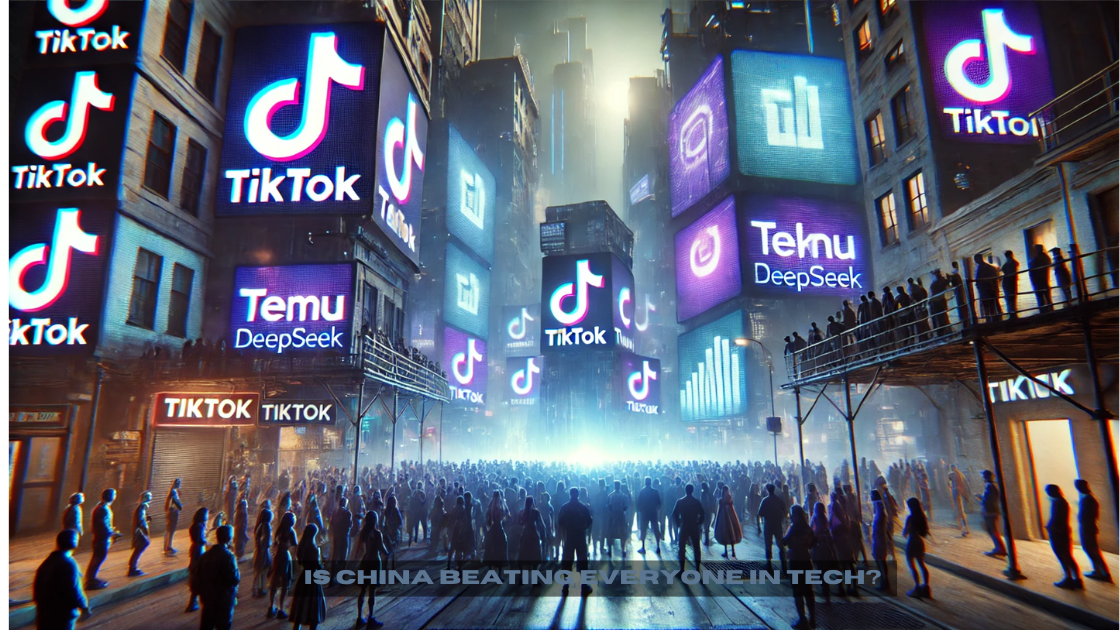For years, the world has looked to the West for cutting-edge technology. The U.S. gave us Silicon Valley, the internet boom, and AI breakthroughs. But today, there’s another giant in the room—China. And it’s not just catching up. It’s leading.
From AI to electric cars, China has quietly, yet aggressively, positioned itself as a tech superpower. Apps like TikTok and CapCut, TEMU dominate social media. BYD is outpacing Tesla in EV production. Chinese solar panels power most of the world. And drones? DJI, a Chinese company, owns about 70% of the global market.
But you know what, while China’s rise is undeniable, not everyone is cheering. Some argue that China isn’t truly innovating, just mass-producing and refining what others create. Others worry that its dominance comes with strings attached, from government control to alleged intellectual property theft. So, is China’s tech boom something to admire—or something to fear?
The Silent Takeover
China’s “Made in China 2025” strategy wasn’t just a catchy slogan. It was a well-executed master plan. In less than a decade, the country transformed itself from the world’s factory into a leader in AI, electric vehicles, and quantum computing.
Take AI, for example. While companies like OpenAI and Google’s DeepMind led early breakthroughs, China quickly caught up. DeepSeek, China’s homegrown AI chatbot, is already making waves, competing directly with its Western counterparts. And the numbers don’t lie—China now files more AI patents than any other country.
In the energy sector, China owns about 80-95% of the global solar panel supply chain. By 2028, experts predict it will generate 60% of the world’s renewable energy. If that happens, can the world ever ignore China’s grip on green technology?
And let’s talk about electric cars. Many laughed when Chinese automakers first entered the EV race. But now, companies like BYD are outselling Tesla. They produce high-quality, affordable electric vehicles, forcing legacy carmakers to rethink their strategies.
The "It's From China" Stigma
Despite these achievements, many still hesitate to give China credit. You’ve probably heard people say, “Yeah, it’s cool, but it’s from China.” There’s a lingering stigma that Chinese tech is inferior, cheap, or just copied from the West.
But is that really fair?
Sure, China has been accused of stealing intellectual property. The U.S. and other nations have hit Chinese companies with sanctions, claiming they pose security risks. Huawei, once a leader in 5G, was nearly crushed by U.S. restrictions. But guess what? It bounced back, developing its own advanced microchips despite global bans.
The same happened with AI. When Chinese firms faced limits on accessing powerful chips, they innovated with less. The result? A high-functioning AI model built with fewer resources—something that should’ve been impossible.
So, is China’s success purely built on copying, or is it a sign of true resilience and adaptation?
What Happens Next?
China is pushing forward, but it’s not an easy road. The U.S. and its allies are fighting back, pouring billions into semiconductor production to keep their edge in chipmaking. Countries like Germany and Japan are launching strategies to maintain their tech leadership. The battle isn’t over—it’s just heating up.
So, is China winning? Maybe. But the real question is—can anyone stop it?








